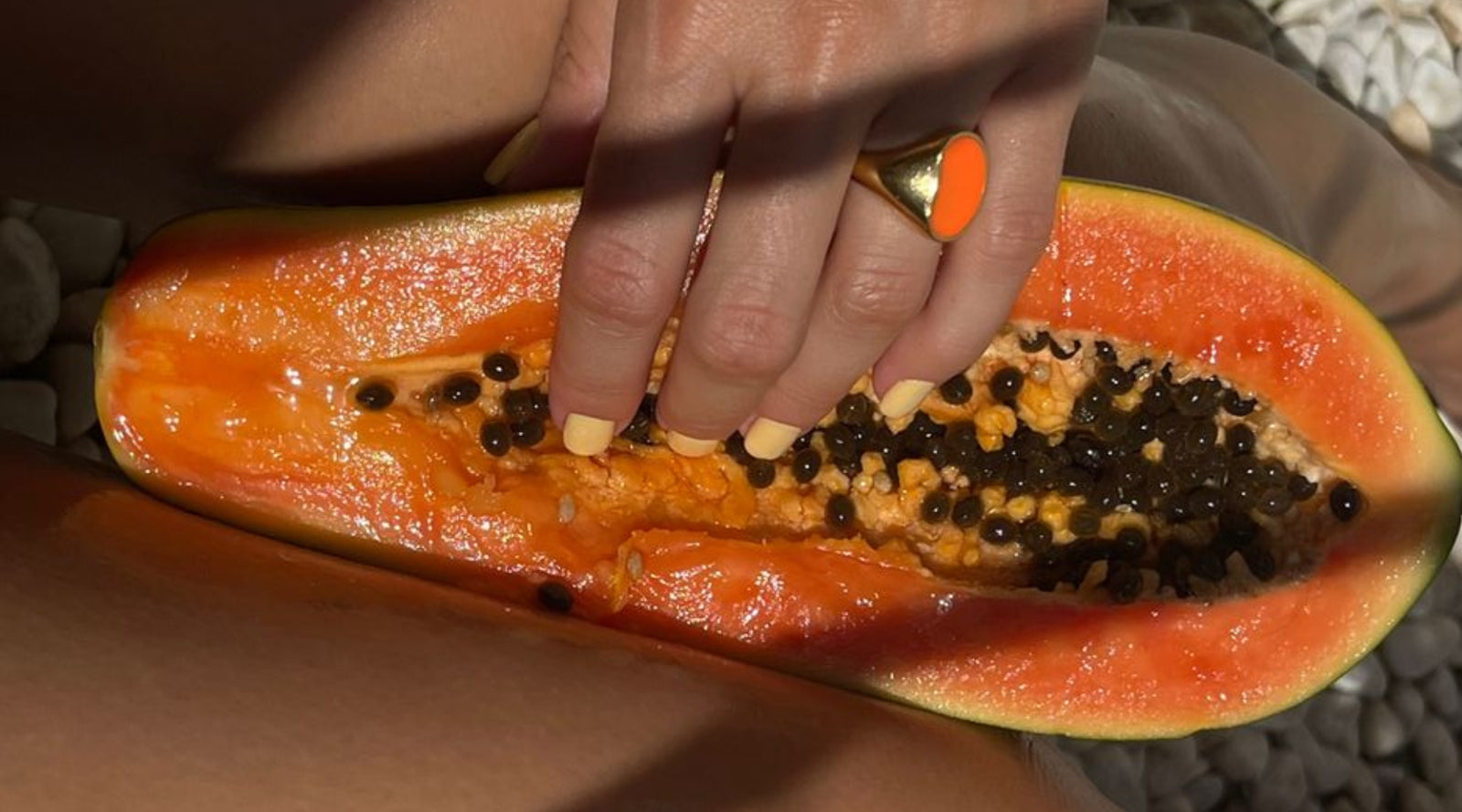What Your Gut Health Means For Your Vaginal Health

Alright, ladies, it’s time to talk about two of our favourite topics: gut health and vaginal health. You might be wondering, "What does my gut have to do with my vagina?" Well, quite a lot, actually. Your gut and vagina are like besties—what happens to one can totally affect the other. So, let’s dive into the juicy details of how keeping your gut in check can help you maintain a healthy, happy vagina.
The Gut-Vagina Connection
Think of your gut and vagina as neighbours in the same microbial neighbourhood. Your body is home to trillions of microorganisms, including bacteria, fungi, and viruses, that live in harmony (most of the time). These microorganisms play a crucial role in maintaining your overall health, including the health of your gut and vagina.
How Gut Health Affects Vaginal Health
- Microbial Balance: Your gut microbiome and vaginal microbiome are like a tag team, working together to keep things balanced. A healthy gut microbiome supports a healthy immune system, which in turn helps maintain the right balance of good and bad bacteria in your vagina. An imbalance in your gut can lead to an vaginal imbalance, making you more susceptible to infections like bacterial vaginosis (BV), UTI's and yeast infections.
- Inflammation: Gut health plays a significant role in regulating inflammation throughout your body. If your gut is inflamed due to a poor diet, stress, or other factors, it can lead to systemic inflammation that affects your vaginal health. Chronic inflammation can make your vaginal tissues more sensitive and prone to irritation and infections.
- Immune Function: A healthy gut is essential for a robust immune system. Your immune system helps protect your vagina from harmful pathogens. When your gut health is compromised, your immune system might not function at its best, leaving your vagina more vulnerable to infections.
How to Keep Your Gut (and Vagina) Happy
Now that we know how connected our gut and vagina are, let’s talk about how to keep them both in tip-top shape.
- Eat a Balanced Diet: Your gut microbiome thrives on a diverse range of nutrients. Incorporate plenty of fruits, vegetables, whole grains, and lean proteins into your diet. Foods rich in fibre, like leafy greens and legumes, are especially good for your gut health. It's important to change these up, don't just have the same types of these foods each week.
- Probiotics and Prebiotics: Probiotics are beneficial bacteria that support a healthy gut microbiome. You can find them in foods like yoghurt, kefir, sauerkraut, and kimchi, or in supplement form. Prebiotics, found in foods like garlic, onions, and bananas, feed your good gut bacteria and help them flourish.
- Stay Hydrated: Drinking plenty of water is essential for overall health, including your gut and vaginal health. Proper hydration helps maintain the mucous membranes in your vagina, keeping it moist and less susceptible to irritation.
- Manage Stress: Stress can wreak havoc on your gut and, consequently, your vaginal health. Practice stress-reducing activities like yoga, meditation, or even a good old-fashioned bubble bath to try and help your stress levels - it's not always that easy we know!
- Limit Sugar and Processed Foods: High sugar and processed food intake can disrupt your gut microbiome, leading to an overgrowth of harmful bacteria and yeast. This can affect your vaginal health, increasing the risk of yeast infections and BV.
- Get Regular Exercise: Physical activity is great for your gut health and overall well-being. Aim for at least 30 minutes of moderate exercise most days of the week to keep things moving smoothly.
How to Know If Your Vaginal Health Is Off
Wondering if your vaginal health needs some TLC? Here are some common signs that your vaginal health might be off:
- Unusual Discharge: While some discharge is normal, a significant change in colour, consistency, or odour can indicate an imbalance or infection.
- Itching or Irritation: Persistent itching or irritation in the vaginal area can be a sign of an infection or other health issue.
- Pain or Discomfort: Experiencing pain during sex, urination, or daily activities can be a red flag that something’s not right.
- Odour: A strong, unpleasant odour that’s different from your usual scent can signal an infection.
How to Know If Your Gut Health Is Off
Your gut health might need attention if you notice any of these signs:
- Digestive Issues: Frequent bloating, gas, constipation, or diarrhoea can indicate an imbalance in your gut microbiome.
- Food Intolerances: If you suddenly find yourself reacting poorly to certain foods, it could be a sign that your gut health is compromised.
- Fatigue: A sluggish gut can lead to a sluggish you. If you’re feeling unusually tired all the time, your gut health might be to blame.
- Skin Problems: Conditions like acne, eczema, or unexplained rashes can sometimes be linked to gut health issues.
- Mood Swings: Your gut produces neurotransmitters like serotonin, which affect your mood. If your gut is unhappy, you might feel more anxious or depressed.
When to Seek Help
If you’re experiencing persistent gut or vaginal health issues, it’s always a good idea to consult with a healthcare professional. They can help you identify any underlying conditions and provide personalised recommendations to get you back on track.
Your gut and vagina are more connected than you might think. Taking care of your gut health can have a positive impact on your vaginal health, too. So, load up on probiotic-rich foods, stay hydrated, and try to manage stress where possible—it all helps keep things in balance. Your gut (and your vagina) will thank you!
Stay balanced, babes! xxx




